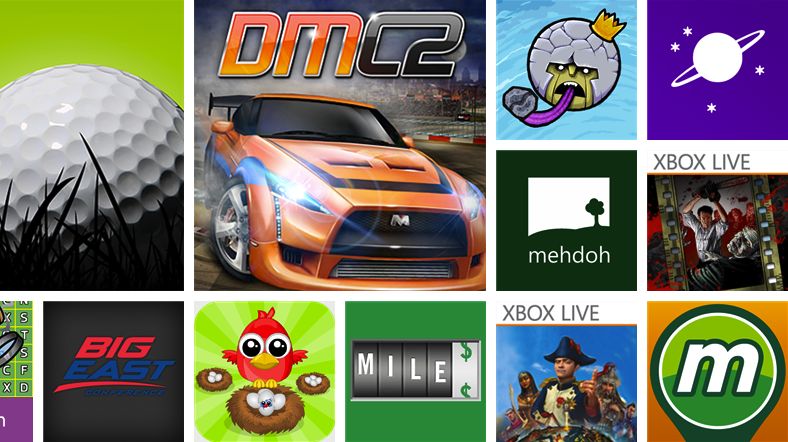Windows Phone has an app problem, but don't tell that to Microsoft
Talking strategy with Microsoft

Sign up for breaking news, reviews, opinion, top tech deals, and more.
You are now subscribed
Your newsletter sign-up was successful
Since its launch in October 2012, Windows Phone 8 has been a question mark in the mobile OS world. Microsoft still trails Android and iOS significantly in mobile system market share, and stats show it's behind even BlackBerry.
But there are signs of hope for Microsoft's mobile ambitions - this week the company announced that Windows Phones outsold iPhones in seven countries during the fourth quarter of 2012. Granted, those nations included India, South Africa and Russia and not major markets like the U.S., but still, sales are sales.
Aside from the lag time in boosting numbers following the release of a whole new OS, a lack of competitive apps is no doubt holding Windows Phone back. Whereas Apple has 689,000 apps for the iPhone, the Windows Phone Store owns around 135,000 apps and games. There's still no Instagram, and the Store finally picked up Temple Run Wednesday, though, as Wired noted, not the up-to-date Temple Run 2 or Temple Run: Oz titles.
Curious about Windows Phone's plan for success, we sat down with Casey McGee, senior marketing manager at Microsoft, and Larry Lieberman, senior product manager, Windows Phone developer program, at GDC this week to get a read on the OS, what it's done right and how it plans to get where it wants to go.
Dev first approach
Both made much of Microsoft's developer-focused approach to games - we were at a game dev conference, after all - and noted that by allowing game devs to code natively while also giving them middleware like Unity and Marmalade to work with has fostered a robust creation environment.
"Larry and I are a little bit biased because of what we do for a living, but to us it really looks like we're the only ones that created a product with developers in mind," McGee said.
"I don't think anybody took the approach we did where we started over between Windows Mobile and Windows Phone and from day one we said, 'We need to create an amazing developer experience.'"
Sign up to the TechRadar Pro newsletter to get all the top news, opinion, features and guidance your business needs to succeed!
Developer interest accelerated with Windows Phone 8 as the platform became more open, the pair said. An internal promotion system has also translated to better app sales. While devs are happy making cash off their products, Lieberman said customers are benefiting from the dev-based approach too.
"The No. 1 guidance for Windows Phone since the very beginning has been to create an outstanding end-user experience," he said. "And apps are part of that outstanding user experience.
"We had to bring our developer expertise to the table in order to create that ecosystem that generates those apps, that generates that innovation that people expect and need because it's that long tail, right?
"On other platforms, an app gets installed and it's just an icon somewhere," Lieberman continued. "Most apps get installed and never get used again on other platforms. What we're trying to do is expose apps in contextually relevant ways."
He pointed to Lenses as a prime example of this contextual relevance - users can click on the Lens button to access apps that aren't only readily accessible, they make sense for what users want to use and when.
Clicking Lenses will take users to a set of apps that leverage a Windows Phone 8 handset's camera viewfinder, plus offer a path to the market place for more viewfinder-friendly apps.
It's not a two OS world
Lieberman and McGee aren't blind to the reality of the mobile OS hierarchy - "We understand the reality of the world today," Lieberman acknowledged - but both believe Windows Phone has a better-than-average chance to stake out a healthy place in the mobile ecosystem.
"We have said that our stated goal is to create a vibrant, differentiated third ecosystem in and of itself," McGee said. "And by that we mean something that is self-sustaining, something that is different from what is out there today.
Michelle was previously a news editor at TechRadar, leading consumer tech news and reviews. Michelle is now a Content Strategist at Facebook. A versatile, highly effective content writer and skilled editor with a keen eye for detail, Michelle is a collaborative problem solver and covered everything from smartwatches and microprocessors to VR and self-driving cars.
